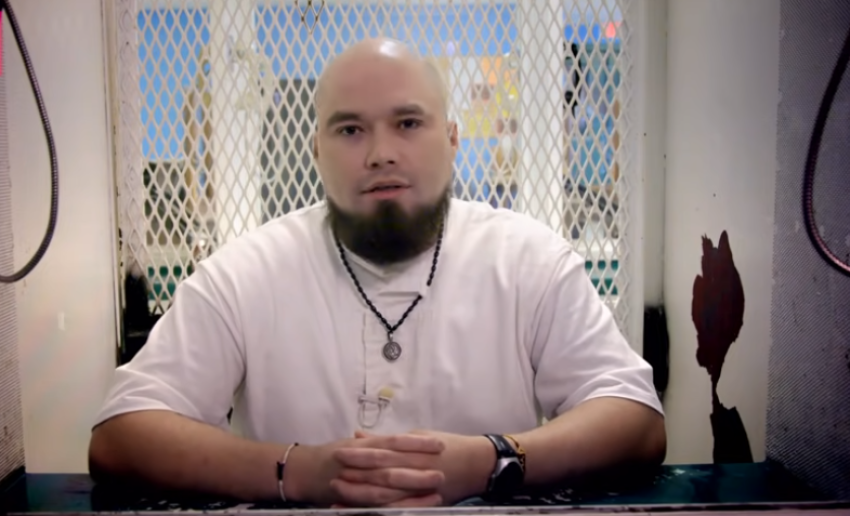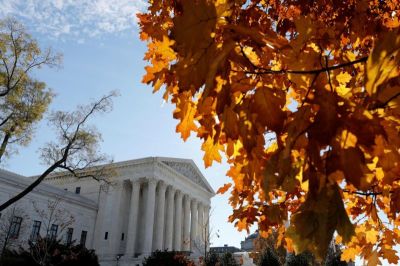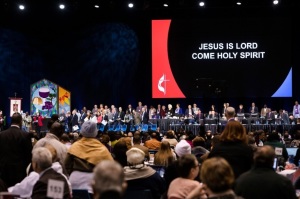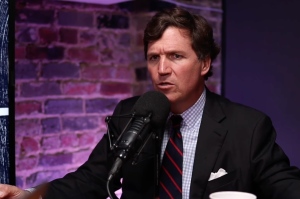Supreme Court justices question sincerity of Texas death row inmate’s Christian beliefs

U.S. Supreme Court justices and lawyers have questioned the sincerity of the Christian faith of a Texas death row inmate who recently had his execution delayed because state officials will not allow his pastor to lay hands and make vocal prayers as he receives a lethal injection for murdering a man in 2004.
John Henry Ramirez, 37, had his execution for the murder of 46-year-old convenience store worker Pablo Castro in Corpus Christi delayed by the Supreme Court on Sept. 8 until after a hearing of the merits of his case which was held on Tuesday.
During the hearing, Justice Clarence Thomas and several of his colleagues raised questions about the sincerity of Ramirez’s faith and whether he is simply using litigation to delay his execution.
“If we think that Mr. Ramirez has changed his request a number of times and has filed last minute complaints and if we assume that’s some indication of gaming the system, what should we do with that with respect to assessing the sincerity of his beliefs?” Thomas asked.
The case against Ramirez shows that he stabbed Castro 29 times during a robbery in 2004, from which he only got $1.25 after a three-day drug binge with two women who were with him at the time of the murder. He fled to Mexico after the attack but was arrested 3.5 years later and sentenced to death.
Since then, his lawyer, Seth Kretzer, says he is now a practicing Christian. Dana Moore, pastor at Second Baptist Church in Corpus Christi, has been Ramirez's spiritual adviser for the last four years. The Southern Baptist Convention's Ethics & Religious Liberty Commission, the National Association of Evangelicals and religious freedom groups have also supported the cause of the death row inmate.
Kretzer previously argued that the Texas Department of Criminal Justice was violating his First Amendment right to practice his religion by preventing Moore from laying hands and making vocal prayers as he receives his lethal injection.
"It is hostile toward religion, denying religious exercise at the precise moment it is most needed: when someone is transitioning from this life to the next," Kretzer said in court documents.

On Tuesday, Kretzer argued that Texas officials can allow his client to have his pastor lay hands and pray over him in the execution chamber because they have done it before.
“Across Texas, 572 executions spanning four decades, the state’s policy was to allow a spiritual adviser to be present in the execution chamber, to lay hands on a condemned inmate and to audibly pray. In 2019, that longstanding practice changed suddenly when the state chose to forbid any religious adviser from the execution chamber,” he said.
Kretzer told the court that Ramirez and other inmates fought to preserve those rights, but as the challenges were underway, Texas withdrew Ramirez’s 2020 execution date in exchange for withdrawing his challenge.
Six months later the state reset Ramirez’s execution date. And two months after that officials also reversed their decision to ban spiritual advisers.
“The state then waited months more to reveal a ban on touch and only later it banned the spoken word,” Kretzer argued.
“TDCJ’s own history and practices, as well as the current approaches of the federal government and states like Alabama, prove that Texas’ restrictions on touch and prayer are not the least restrictive means of furthering … proper execution interests,” he continued. “Mr. Ramirez should prevail as a matter of law under RLUIPA (Religious Land Use and Institutionalized Persons Act of 2000)… this court should remand for an evidentiary hearing in which both sides may develop the record.”
Judd Stone, Texas' solicitor general, told the court that Ramirez has already had his execution delayed several times at the last minute and suggested he was gaming the system with “piecemeal litigation.”
“Each time he litigates or had an execution date he receives another lengthy reprieve. This court should not countenance the delay of a fourth execution date,” Stone told the Supreme Court.
“Ramirez claims that he has consistently sought the same relief, namely his pastor’s touch and audible prayer throughout his piecemeal litigation. There are two problems with that assertion. First, it’s false. Ramirez disclaimed in 2020 that he wanted pastoral touch. And in April 2021 Texas gave Ramirez all that he had been looking for at that time — his pastor’s presence in the execution chamber,” Stone said.
“Second, Ramirez’s assertion makes his litigation conduct inexplicable. If Ramirez was aware the entire time that he wanted pastoral touch and audible prayer but he has no excuse for failing to timely raise and grieve those requests,” he added. “Ramirez stated in August that he assumed his pastor could not audibly pray. And he distinguished touch from presence in his 2020 suit. Ramirez has delayed in seeking accommodations, reversed his litigation positions … all for the purposes of delay. This court should put an end to these tactics once and for all.”
When Justice Thomas asked if Ramirez always requested the laying on of hands, Kretzer pointed out how Ramirez filed grievances “repeatedly requesting the same thing.”
Thomas argued that “you have people filing grievances in non-religious contexts and that’s not evidence of their religious beliefs. It’s evidence that they don’t obviously want to be executed. And in some instances, they are gaming the system."
“My question is, can one’s repeated filing of complaints, particularly at the last minute, not only be seen as evidence of gaming the system but also of the sincerity of religious beliefs?”
Kretzer agreed that it’s something that was possible but he could only speak for his client.
“I do not play games, there is no dilatory tactics in this case,” he said, going on to explain how his client has always tried to file complaints as quickly as possible.
In his arguments for the federal government in the case, Eric Feigin, U.S. deputy solicitor general, noted that there were “continuing factual disputes on many issues that we think ultimately warrant remand.”
“We agree that Texas can vindicate its compelling interests by substantially limiting physical contact with the inmate and vocalization by a spiritual adviser in the highly choreographed and sensitive execution procedure,” he said.
In questioning Feigin, Thomas asked again about how sincerity of beliefs and how that would be assessed under the Religious Freedom Restoration Act of 1993 and RLUIPA.
“I think sincerity is quite relevant under both statutes Justice Thomas, but I think you’re quite right that in the RLUIPA context there might be particularized incentives for someone to falsely claim a religious belief and some of those concerns are manifest here and would need to be developed a little bit further,” Feigin said.
“Obviously it raises one red flag that something different was claimed in the 2020 litigation and now we have the state’s lodging … of the redactive declaration. You can see the representation was made that on the day he [Ramirez] thought he was going to be executed the only reason he wanted to meet with Pastor Moore was because of the pending litigation which raises further sincerity concerns. We took sincerity as a given here because the lower courts did,” he said.
Justice Sonia Sotomayor asked Feigin if he had a reason why the Supreme Court should send the case back to the lower courts and let Texas officials decide whether they want to execute Ramirez and he said, “essentially we don’t disagree that the court should simply remand.”
Chief Justice John Roberts said he wasn’t sure how prison officials and judges can be expected to judge sincerity and asked Feigin how he would treat the issue.
“I don’t understand how the prison officials and then judges are supposed to assess sincerity. I mean it is certainly understandable that as death approaches inmates may have different religious views than they did before and want to take those into account,” he said.
“Let’s say a week before [execution] a prisoner comes in and says I want to become a member of a particular church because I think I need that to be saved and the period, the training is three months and it’s very sincere, what happens then?” he asked Feigin.
Feigin said he thought it was difficult to assess the sincerity of a person’s faith, but attempted to provide a framework for evaluating it anyway.
“Generally, I think it is a robust requirement that courts have been able to use to eliminate certain frivolous claims like my religion requires me to be a marijuana distributor or something to that effect. I think it gets somewhat more difficult, your honor, in this context and it might well require something like an evidentiary hearing here,” he said.
“And I think there will be cases in which sincerity has certain red flags on it, and I think this case may or may not be one of those. But in a case where it does appear the inmate has a sincere religious belief, the court would have to proceed to the furthest steps,” Feigin argued.
Roberts also asked Stone how he would deal with the hypothetical conversion of a death row inmate a week before a scheduled execution, and he said: “Well, your honor, the court would have to determine first if that was a sincere conversion.”
He then explained that he would look into factors to see how the individual behaved in the past, but Roberts interjected: “Well he had a conversion experience. I suspect impending death focuses people’s concerns on religion in a way they may not have been before and with death imminent he decided he needed to pursue this route to salvation.”
“On just those facts alone your honor, it would sound to me that with nothing else that the individual might be seeking delay of his execution,” said Stone. “Because several days beforehand he’s requesting a multi-month process, but I think that would be a credibility determination.”
Again, Roberts asked him how he would do that.
“Maybe he’s not sincere but how can you tell?” asked Roberts.
“You look at other collateral circumstances such as whether or not there was previous contact with the pastor that sort of engendered a spiritual relationship. Whether or not the person had raised similar claims beforehand and if so when relative to previous execution dates of whether or not this individual has brought other basically … baseless lawsuits,” he said.
“I think these would all be the kinds of facts and circumstances that would help a district court make the familiar inquiries as to whether or not basically they are being lied to,” Stone said. “Undoubtedly because this is a very sensitive area of law and a very sensitive area of human experience it’s going to require an examination of a lot of facts and circumstances around the individual and it may be the case that district judges making this factual determination for the first time are going to tend to give some deference to the individual on the surface of things.
“But Congress has placed that initial burden on the individual trying to show sincerity so at a minimum that person has to start by introducing some proof that they have a sincere need.”



























